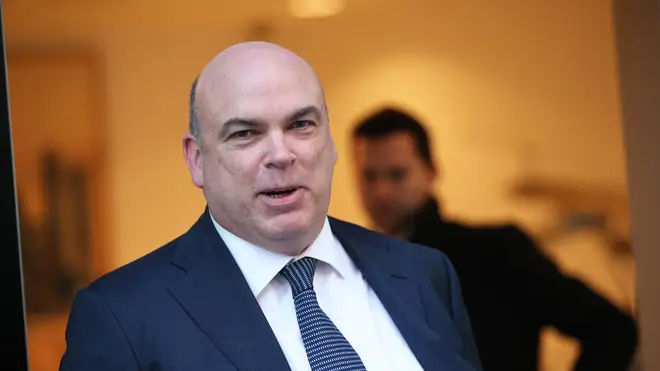
Ali Miraj 12pm - 3pm
18 January 2022, 14:54

Mike Lynch has mounted a High Court challenge to a decision made by a judge during extradition proceedings.
A British technology tycoon facing extradition to the United States after being accused of fraud has begun the latest stage of a legal battle.
Mike Lynch has mounted a High Court challenge to a decision made by a judge during extradition proceedings.
A High Court judge is considering the argument at a hearing in London.
Mr Justice Swift heard how, in July, a judge at Westminster Magistrates’ Court rejected “various challenges” Mr Lynch had made to extradition and said Home Secretary Priti Patel could decide whether he should be extradited.
Ms Patel subsequently asked District Judge Michael Snow if she could have until March 2022 to make the decision.
Judge Snow refused her application and said she should make a decision before Christmas.
Mr Lynch has challenged that ruling by Judge Snow and wants a High Court judge to overturn it.
Alex Bailin QC, who is leading Mr Lynch’s legal team, told Mr Justice Swift that Judge Snow’s decision was “irrational”.
US authorities have accused Mr Lynch of being involved in a multibillion-dollar fraud in America over the sale of his software company, Autonomy, to Hewlett-Packard in 2011 for 11 billion dollars (£8.5 billion), which resulted in “colossal financial losses” for the US firm.
They claim that he deliberately overstated the value of his business, which specialised in software to sort through large data sets.
Mr Lynch denies all charges against him.
Ms Patel wants to consider another judge’s ruling, in a separate High Court case involving Mr Lynch, before making an extradition decision.
Lawyers told Mr Justice Swift how that ruling – by Mr Justice Hildyard – was imminent.
Mr Justice Hildyard began overseeing a High Court trial in London more than two years ago.
Hewlett-Packard sued Mr Lynch, and Autonomy’s former chief financial officer Sushovan Hussain, for around five billion dollars (£3.8 billion) over its purchase of Autonomy in 2011.
The technology giant claimed Mr Lynch “committed a deliberate fraud over a sustained period of time” to artificially inflate Autonomy’s value, which it says forced it to announce an 8.8 billion dollar (£6.7 billion) write-down of the firm’s worth just over a year after its acquisition.
Mr Lynch argued Hewlett-Packard was trying to make him “a scapegoat for their failures”.
Mr Bailin told Mr Justice Swift that the issue was “significant”.
“The Secretary of State for the Home Department wishes to consider a very important civil judgment which is due imminently,” he said.
“She wants to consider that, when decided, whether or not to extradite the claimant.
“The civil judgment relates to the very same fraud allegations as are in the US case.”
He said Judge Snow’s ruling was “unlawful in public law terms” and “irrational”.
Mr Bailin said lawyers representing the US government opposed Mr Lynch’s claim.
He told Mr Justice Swift: “The Secretary of State must be master of her own domain.
“In my submission, what the judge did was to encroach on her territory.”
He said the US Government argued that the likely delay was “disproportionate” to any “conceivable relevance” the civil court judgment could have.
Mark Summers QC, who led the US government legal team, said there had historically been problems with delays to extradition.
He said the “statutory perspective” meant a home secretary was “constrained by time”.
Mr Summers said Judge Snow was entitled to question the reasoning behind any delay sought.
He said the evidence in the civil case had been concluded two years ago and had not led to US authorities bringing further charges.
Mr Summers said Judge Snow’s decision was “entirely correct”.
“The judge’s decision was sound,” he told Mr Justice Swift. “It was right.
“It cannot be vitiated by any conceivable public law error.”
Mr Justice Swift said he would deliver a ruling on a date to be fixed.